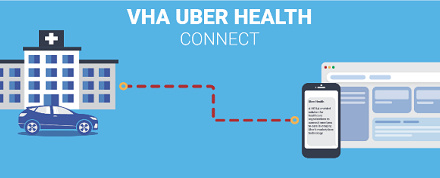The Health Information Management (HIM) field is constantly evolving. Many of the recent and soon to be implemented changes stem from legislation like the American Recovery and Reinvestment Act (ARRA) and the HITECH Act. The changes are vast and vary from the implementation of Electronic Health Records (EHRs) to an increased focus on protected health information (PHI). Yet, they share a common theme—information technology is now at the forefront of the HIM field.
Hospital and physicians’ offices can no longer delay jumping on the health information technology bandwagon. Whether discussing security risks, EHRs, or new HIPAA policies, the topic of health information technology cannot be avoided.
With ARRA’s emphasis on the use of electronic health records, the healthcare industry is also continuing to become more data-driven. The increased importance of accurate, accessible, and secure healthcare data furthers the importance of information technology for HIM professionals. The high value placed on this stored data requires skills in data management, data analytics, and data reporting. After all, what good is data if it cannot be used to improve processes or answer questions? These three data components are critical to the life-saving and money-saving studies done in hospitals and physician offices across the country. Without the data—obtained through technology—it proves difficult to improve patient care or the organization’s bottom line.
New health information technology is not only transforming the work of HIM professionals, but also impacting patients. The implementation of EHRs has made patients’ access to personal health information easier than ever before. While providing better patient access to their medical records may sound simple to some, HIM professionals know that it was many years in the making.
All of these exciting changes in the HIM field also mean that employers are looking for new skill sets. Earning prestigious credentials is an excellent way to become a leader in the ever-advancing HIM field. AHIMA’s Certified Health Data Analyst (CHDA) credential can provide opportunities for HIM professionals to grow in the field and demonstrate commitment to employers. The CHDA validates the mastery of data management, analysis, and reporting. CHDA-credentialed professionals cement their role within their organization by being the resident expert in data-related matters.
Another essential information technology-related domain is privacy and security. Earning AHIMA’s Certified in Healthcare Privacy and Security (CHPS) credential demonstrates a choice to focus on a specific area and professionally advance by specializing in the privacy and security dimensions of HIM. This credential shows not only dedication to an employer, but also to patient care. The CHPS credential denotes competence in designing, implementing, and administering comprehensive privacy and security protection programs, which is at the core of many organizational goals.
The field of health information management will continue to develop and change. Clearly, there is no end in sight because there will always be new technology and new legislation requiring its use. HIM professionals must show a commitment to lifelong learning by becoming leaders, not just followers. Earning an information technology-related credential can help healthcare professionals to have a brighter future.


























